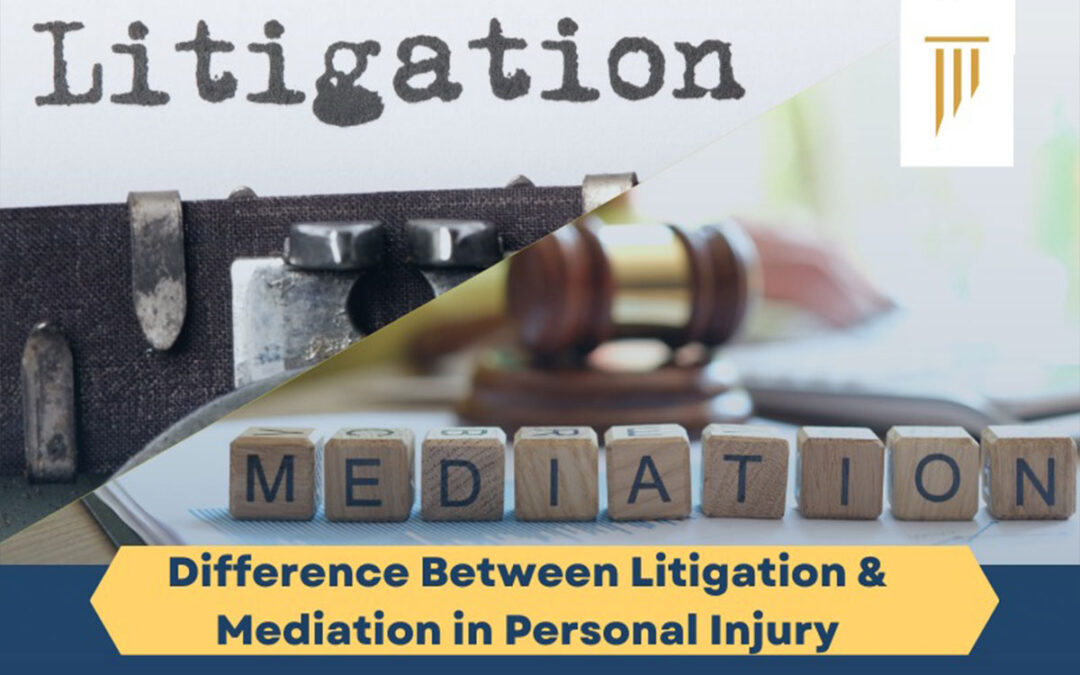The Difference between Litigation & Mediation in Personal Injury
When it comes to resolving a personal injury dispute, there are two main options: litigation and mediation. While both paths have pros and cons, understanding the difference between them is critical in making the best decision for you and your case. This post will outline those differences and help you decide which option is right for you.
Litigation
The legal definition of litigation is “a court proceeding for administering justice.”
Litigation is the most formal and has the strongest potential outcomes in terms of results. This involves much more time, money and effort than mediation requires. It also means that the process will be much longer: it’s not uncommon for some cases to stretch out over several years before making a final decision.
Since the matter entails serious implications, usually, one party (or both) will choose to hire an attorney who can manage their case on their behalf as well as familiarize themselves with relevant laws regarding personal injury law and other implications. In this case, you are hiring an expert professional who knows how to navigate these complexities while keeping your rights and interests in mind.
No matter what the outcome of the litigation, it will be legally binding and cannot be modified or changed later on. This can point to a great deal of security—you know that once you’ve reached a conclusion, there are no additional changes that can be made over time. On the other hand, this also means that if you decide to go down this route, you should make sure you have all of your bases covered from the start: making mistakes or having missteps along the way could lead to negative consequences for your case.
Mediation
Mediation can be defined as “a technique for resolving disputes through an impartial third party who works to help the two opposing parties come to a mutually agreeable solution.”
Unlike litigation, mediation is more informal in nature and requires less time, money and effort than going to court would. It also involves far fewer legal processes. As such, it’s an excellent option for those looking to end their dispute as quickly as possible while still achieving satisfactory results.
One major benefit of mediation is that it offers a high level of flexibility. Since no formal rules or laws apply here, the mediator has much more discretion when determining what outcomes are fair and appropriate for each case. This can make the experience much less stressful overall compared to going to court.
At the same time, if you choose to go down this route, it’s important to note that uncertainty is involved. Since mediation involves negotiating directly with the opposing party and does not rely on formal rules and regulations, the overall outcome will be largely based on how well each person can convince or persuade the other. This can lead to some disputes lasting longer than necessary and sometimes even becoming more complicated as a result.
Litigation vs. Mediation: Which One is Better?
Whether litigation or mediation serves your needs better depends on your case. Mediation may be the right choice if you are looking for a more flexible and collaborative approach to resolving your dispute that focuses on compromise. However, litigation may be the better option if you seek a quicker and more decisive resolution driven by legal expertise and courtroom experience. Ultimately, it is up to each party to weigh their options and decide which path best suits their needs and interests.
So if you are facing a personal injury case in the near future, it is critical to consult with an experienced attorney who can help you navigate these complex legal issues and make informed decisions about your options moving forward.


Recent Comments